WEST BATH — It’s a sunny, late summer day on the Maine coast. You’re cruising in your car on a two-lane road and you want to hear some music to fit your upbeat mood. Seemingly by accident, you hit the AM radio button on the dash and out pours the voice of Tom Jones, prancing and preening through the two-minute workout entitled “It’s Not Unusual.”
Suddenly, as the sun reflects off the water beyond your windshield, your vision is slightly clouded and you could swear it’s 1965 again and you’re headed to the Sou’wester burger stand for a vanilla coke before hitting Cedar Beach. What was it you were doing? What does it matter? Here come the banjo chords of “Those Lazy, Hazy, Crazy Days of Summer” by Nat “King” Cole strumming over the airwaves and the time warp is nearly complete.
“Music evokes emotion, and emotion can bring with it memory… it brings back the feeling of life when nothing else can,” the late neurologist and best-selling author Oliver Sachs once wrote.
Musical memories are broadcast 24 hours a day across a vast swath of the Northeast from a slightly musty studio tucked into an obscure, but beautiful, corner of West Bath near the New Meadows River. Here, Bob Bittner, a veritable one-man band of “warm and cozy” music, produces one of the most eclectic, engaging and, OK, somewhat eccentric, playlists heard anywhere over the airwaves.
“I play music from the 1930s to the 1980s,” the 66-year-old said during an interview at his studio. “But my focus is from 1945 to 1979, when people, at least some people, were happiest in this country.”
Where else other than the “Memories Stations” can you tune in and catch classics like “Fascinating Rhythm” by Ella Fitzgerald, followed by “Midnight at the Oasis” by Maria Muldaur, mixed in with crooners from the 1930s and an instrumental version of “Ruby Tuesday” by the London Philharmonic Orchestra? Of course, some musical memories are best left undisturbed: Few stations these days can find time for Paul Anka’s “Having My Baby,” a cringe-inducing pean to paternalism. Bittner still plays it.
And, to mangle another Anka-penned ballad, Bittner does it his way. No commercials, although the stations he owns – WJTO, 730-AM and 98.3-FM in Maine and WJIB, 740-AM in Cambridge, Massachusetts – are commercially licensed. He recently completed a successful on-air fundraising campaign, but he only seeks the money needed to simulcast his music on all the stations – about $129,000, combined. Listeners’ contributions, which are not tax deductible, must be sent as checks and money orders through the U.S. mail, and are deposited in local banks.
Bittner’s tobacco-cured baritone is the only voice you’ll hear outside of the songs and the occasional public service announcement. And you hear him night and day – even during the classic country show on Sunday mornings. And he’s not afraid to use his bully pulpit to offer his democratically tinged libertarian views and take on a lineup of bad guys: genetically altered foods, credit card companies, welfare programs, water polluters and big Pharma.
Oh, and he doesn’t play any songs written by Bob Dylan. But more on that in a minute.
“My mission is to broadcast older music that most other stations now ignore, which brings pleasant, peaceful, positive thoughts and feelings to the stations’ audiences,” Bittner explained. “In addition, I’m trying to increase awareness of the increasing corruption of our capitalistic system by large corporate and Wall Street forces who are attempting to eliminate the middle class by purchasing lawmakers and generally operating in an unethical manner.”
No small undertaking for a humble disc jockey.
Bittner’s music and message have produced a very loyal cadre of listeners.
Gloria Couture, owner of Gloria’s Hair Studio in Brunswick, said she plays WJTO “all the time” – at home, in her car and at her salon. “I have quite a range of ages in people coming through the shop, and the station just seems to make everyone happy,” she said.
Charles Mansbach, a journalist from Newton, Massachusetts, said: “I listen to WJIB because it plays music I don’t hear anywhere else – songs that I cherished in the ’60s and ’50s, songs that take me back to my early childhood, songs that I’d completely forgotten about, and even songs that I never knew. It’s just such a joy to have that station here.”
Bittner refuses to pay for Nielsen ratings, the standard measure of audience size in the radio/TV world, but based on what he calls “other sources,” he claims about 190,000 weekly listeners for WJIB and, for the Maine stations, 5,000 weekly listeners in summer and 2,000 weekly listeners in winter. During daylight hours, WJTO can be heard south to Cape Cod and in western Nova Scotia. The FM station’s range covers roughly Cumberland to Damariscotta and Harpswell to Gardiner and “almost” Lewiston, Bittner says.
So how does he do it – sending lost “classics” like Dickey Lee’s teen death drama “Patches” or “Bibbidi-Bobbidi-Boo” by Perry Como out over the airwaves without a break – ever?
“I have a music library of about 18,000 songs that are divided into 45 categories, and I run them through a computer program called StationPlaylist, which came out of New Zealand, and it shuffles them with certain categories appearing with greater frequency,” Bittner explained. He can insert public service announcements, referrals to documentaries on YouTube, and cogent quotes from historic figures or alter the lineup of songs if he sees fit. You’ll always hear a version of the “Star-Spangled Banner” at noon and “God Bless America” at 9 a.m., for example. Depending on his schedule, Bittner will sometimes go live on the air to give a weather forecast or a fundraising update.
“The biggest complaint I get from listeners is that I usually don’t identify the performers in between songs,” he said. “There’s so much involved in running the stations, but I’m working on that.”
Bittner estimates that 75 percent of his music library has been donated by listeners – largely in the form of vinyl records. Indeed, on the day I visited his home, which is close by the WJTO studio, a flat, clear plastic storage box of what appeared to be polka albums had been left on the front porch. Bittner listens to the records, picks what he likes and uses a computer program to rip the song into a usable digital form. It’s a time-consuming process, and like much involving the Memory Stations, a labor of love.
“Let’s face it,” Bittner said. “It gives me something to do in life.”
A native of Washington, D.C., Bittner grew up in Virginia Beach, Virginia, and northern New Jersey. He started his radio career while a student at Rochester Institute of Technology during the tumultuous 1960s. He didn’t like much of the “angry” music spawned by those unsettled times, but he still has a warm place in his heart for “Feel Like I’m Fixing to Die Rag” by Country Joe and the Fish.
Bittner’s politics still have their roots in the 1960s, to some extent. “Some people call me a socialist, but I say I’m a democratic Socialist, and there is a difference,” he said. “Capitalism is still the best system – as long as it’s regulated.”
He doesn’t editorialize overtly over the air, but the quotes he offers (“Edward R. Murrow said: ‘A nation of sheep begets a government of wolves.'”), and the movie tips he shares (“Inside Job,” about fraud and deregulation that led to the 2008 financial crisis) make his principles and beliefs crystal clear. He doesn’t believe in welfare, but he supports Bernie Sanders. “I can’t sit by and just play music when I have the ability and opportunity to offer a vision,” he said.
Bittner’s vision of a radio career took him from Rochester, New York, to San Juan, Puerto Rico, and eventually to Boston in 1979. He wore a variety of hats, working in sales, along with his programming, station managing and disc jockey duties. In 1991, using his personal savings, he won a gospel station then known as WLVG in U.S. Bankruptcy Court with a bid of $277,115. He changed the name to WJIB in 1992. With the proceeds from that very successful station, he bought WJTO-AM for $150,000 in 1997 and followed up with the FM signal (for $100,000) in 2013. He is quick to point out that he bought the stations, along with WJYE-AM 1280 in Gardiner-Augusta (purchased for $16,500 in 2013), with his own money, not with listeners’ funds.
Today, Bittner says he lives off his Social Security benefits and from the proceeds of selling an extensive collection of antique license plates on Ebay and elsewhere. He and his wife, Raisa, an architect, spent weekends in Maine starting in 1997 before moving permanently to West Bath in 2008. “I agreed to let her design the expansion of our house, and she agreed to come,” Bittner said. “Now we both love living here.”
Bittner acknowledges that his audience tends to be of an age eligible for AARP benefits. “I hear from elderly listeners who can’t sleep at night,” he said. “The only way they can doze off is to listen to the station. Pain is pushed aside and they have the memory of a better time in their minds.”
But based on his Facebook page – Friends and Lovers of WJIB, which has nearly 1,000 followers – his fans come from all ages and phases of life.
For this listener, Bittner’s music conjures up summer days spent on the Maine coast with slightly older female cousins up from Philadelphia. They brought along their 45s and their love for Frankie Valli (“Dawn”), Leslie Gore (“Judy’s Turn to Cry”) and Jay and the Techniques (“Apples Peaches Pumpkin Pie”), all of which you can hear on the Memories Stations. And then there were the Beatles.
I lodged a complaint with Bittner that it sometimes seemed like I heard more of Gary Lewis and the Playboys and similar pale imitations than I did the Fab Four on his station. He said it was funny, but he’d heard from other listeners that he played the Beatles too much. “One guy actually kept track and said I played 33 different Beatles songs,” he chuckled. He checked his computer: It contains 40 songs by the lads from Liverpool.
Bittner’s personal taste tends toward John Denver, but he also likes instrumentals and he plays four or five an hour, not exactly a trend, outside of classical stations. “I think it offers a good break from the vocalists,” he said. “Instrumental music, particularly the piano, comes through very clearly at a low volume, which is how a lot of listeners play my stations – in the background.”
Which brings us back to why Bittner doesn’t play Bob Dylan, or any of his songs sung by other artists, for that matter. That eliminates a fair hunk of the Peter, Paul and Mary catalogue, not to mention the Byrds and Joan Baez. Clearly, something is happening here.
What’s happening is that Dylan, years ago, signed up with a for-profit music licensing organization called SESAC, which charges much higher usage fees than major nonprofit licensing organizations, Bittner explained.
“I won’t pay them,” he said.
That situation may be a’changing soon, however, as a result of the settlement of a long-running, industry-wide legal action against SESAC.
But for now, Bittner, a man obviously willing to take a stand on principle, spins out his musical memories without the benefit of the bard of the ’60s generation. And his many listeners seem to be just fine with that. While one might miss “Mr. Tambourine Man,” there are always the emotions spawned by “Putting on the Ritz,” “26 Miles (Santa Catalina)” and countless other tunes to be recalled and savored once again on the Memories Stations. As Dylan himself, a man who always knew how to turn a phrase and a nickel, has acknowledged: “If you want to keep your memories, you first have to live them.”
Doug Warren is a freelance writer who divides his time between Harpswell and Austin, Texas. He can be contacted at:
dwarren003@austin.rr.com
Send questions/comments to the editors.

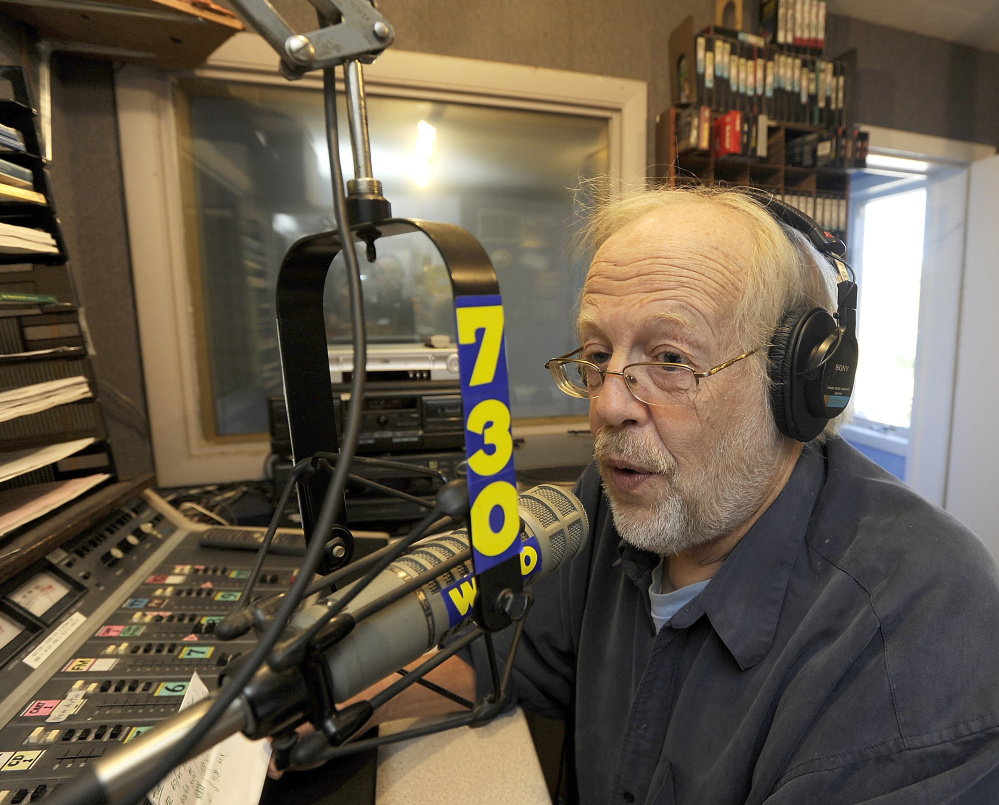

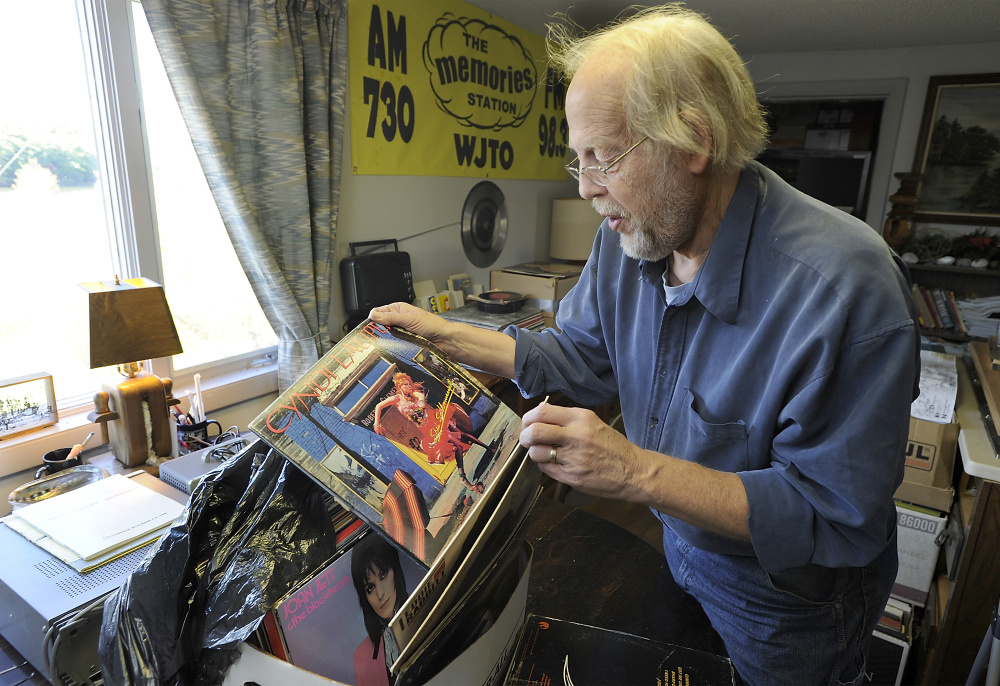
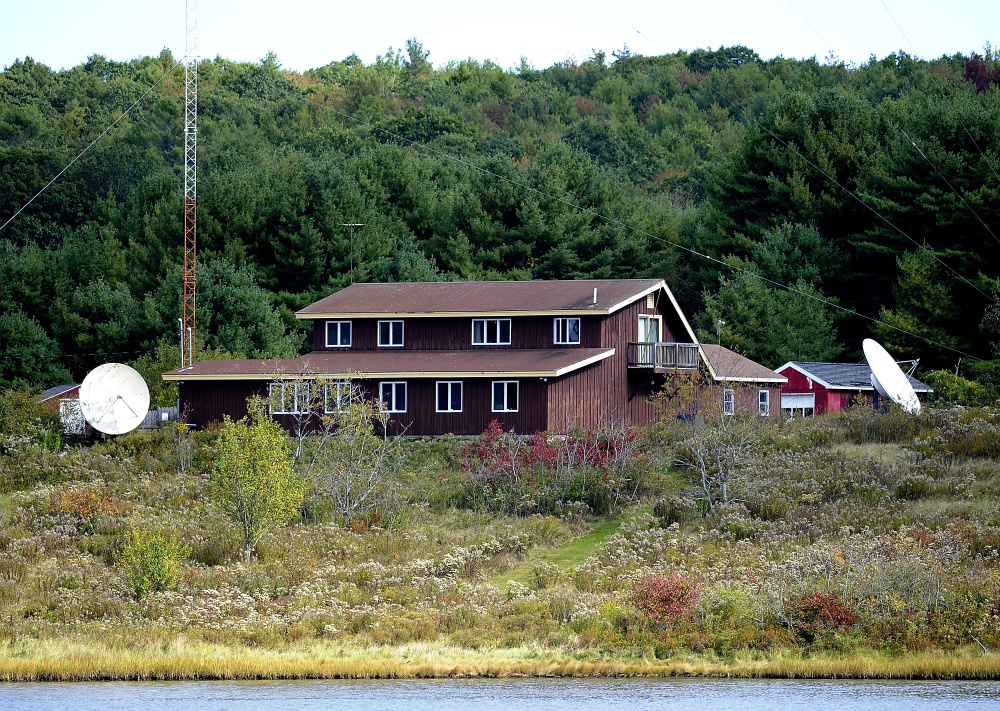
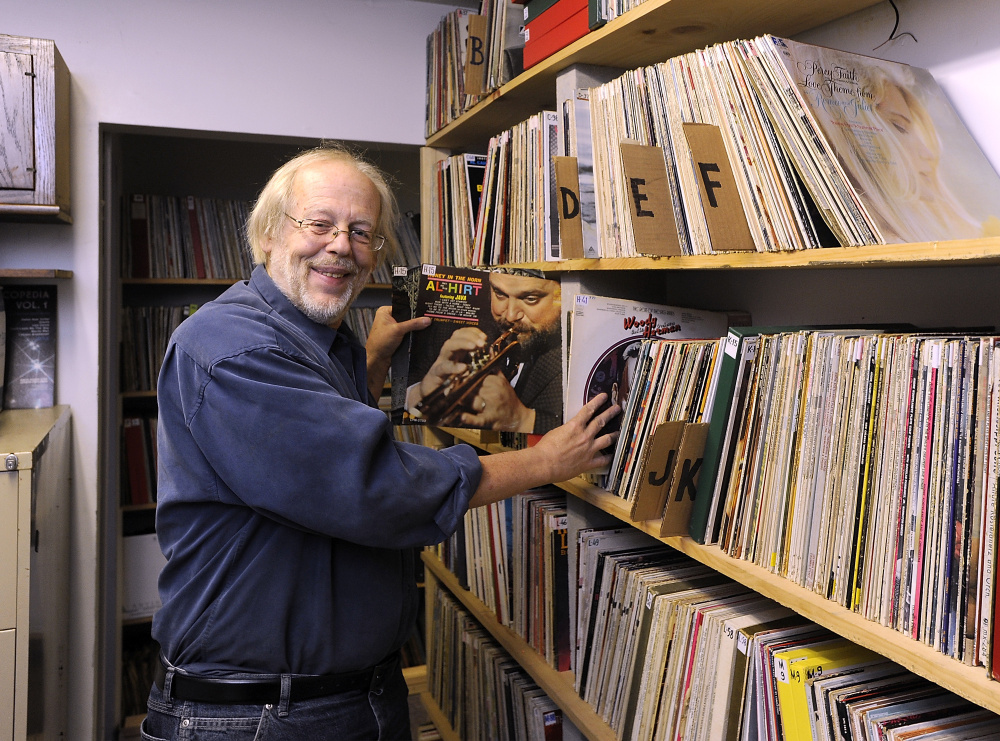
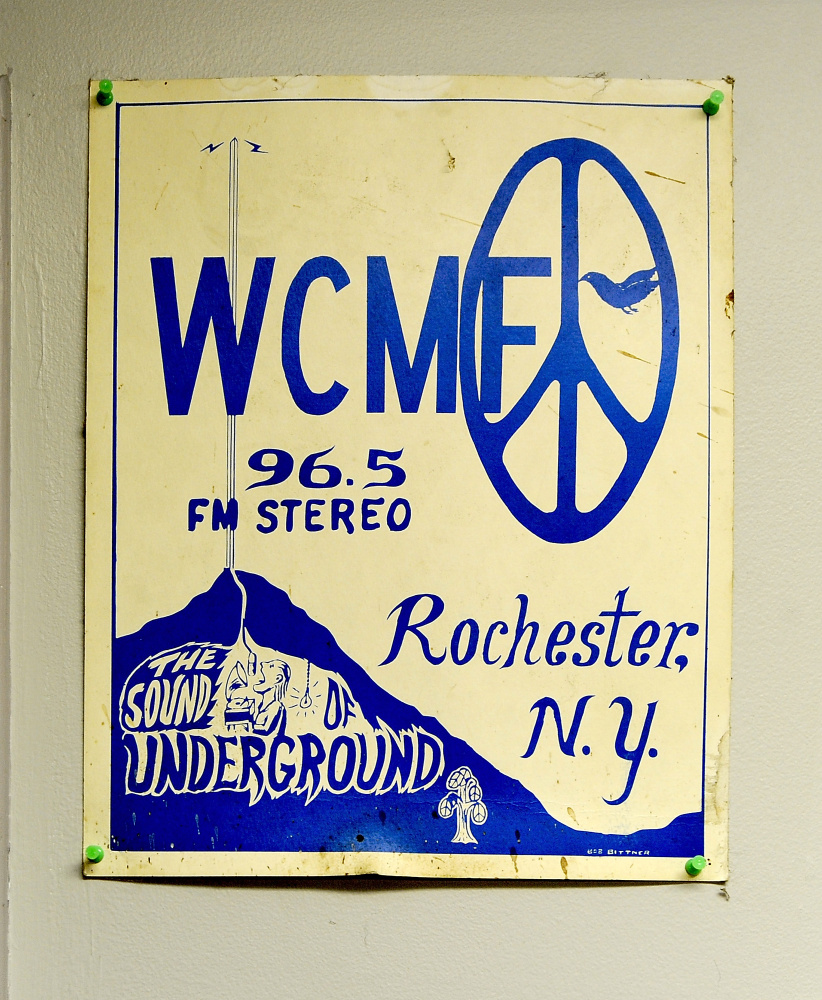

Comments are no longer available on this story